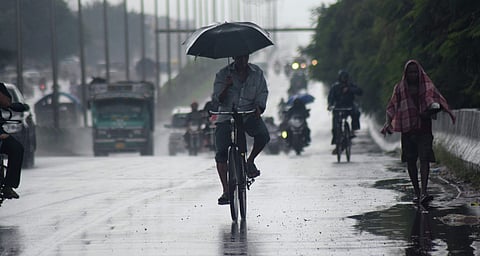

BENGALURU: With predictions of a deficit monsoon looming large over an already drought-hit Karnataka, the state government has decided to undertake cloud seeding. Tenders of two consecutive years - 2019-2020 and 2020-2021 - will be awarded in two weeks’ time and the process of cloud seeding will take off towards June end, Rural Development and Panchayat Raj Minister Krishna Byre Gowda said on Wednesday.
As part of drought relief measures, Chief Minister H D Kumaraswamy held a video conference with District Commissioners and CEOs of taluks where the announcement was made. Revenue Minister R V Deshpande spelt out measures taken by the government to tackle drought.
“At an estimated cost of Rs 88 crore, a tender will be awarded for two consecutive years for cloud seeding, given a prediction of deficit monsoon. Unlike earlier times when the process would begin in August or September after pre-monsoon season, we will implement it this time by June-end when pre-monsoon is at its peak,” Byre Gowda said. He added that two centres - one in Bengaluru and one in Hubballi - will be set up. “Depending on which region receives more rain, the centres can be shifted,” he said.
Kumaraswamy asked officials to tour drought-hit taluks and send feedback. He also gave a one-week deadline to pay all pending bills for drinking water supply for April. Officials have also been instructed to pay bills every 15 days to ensure there is no disruption of water supply. “If there is a delay in payment, PDOs concerned will be held responsible,” a statement from the CMO said.
“The opposition (BJP) has been accusing the government of not responding to the drought situation but for the first time, the highest funds have been deposited to District Commissioner’s PD accounts for relief works. Providing drinking water and fodder is the primary focus of the government,” Deshpande said.
He added that job creation through MGNREGA has also been a prime focus to avoid migration due to drought. With the central government defaulting on payment of wages and material costs, the state government has volunteered to absorb labour costs. So far, water is being supplied to 2,999 villages and 440 wards via private borewells and tankers. The number of cattle camps and fodder banks have been increased to 16 and 165 respectively.